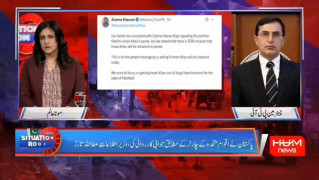Egyptian president announces new Cabinet, Canadians fly out
Published On Mon Jan 31 2011
Cairo's international airport was a scene of chaos and confusion Monday as thousands, including Canadians, waited to flee the chaos in Egypt.
Chris Hondros/GETTY IMAGES
Hamza Hendawi and Maggie Michael Associated Press
Related
CAIRO—A coalition of opposition groups called for a million people to take to Cairo’s streets Tuesday to demand the removal of President Hosni Mubarak, the clearest sign yet that a unified leadership was trying to emerge for Egypt’s powerful but disparate protest movement.
In an apparent attempt to defuse the week-long political upheaval, Mubarak named a new government Monday — dropping the widely hated interior minister in charge of security forces. But the lineup was greeted with scorn in Tahrir Square, the central Cairo plaza that has become the protests’ epicentre, with crowds of more than 10,000 chanting for Mubarak’s ouster.
“We don’t want life to go back to normal until Mubarak leaves,” said Israa Abdel-Fattah, a founder of the April 6 Group, a movement of young people pushing for democratic reform.
In what appeared to be a reaction to the opposition call, state TV aired a warning from the military against “the carrying out of any act that destabilizes security of the country.” But it also said the military underlined that it “has not and will not use force against the public.”
If Egypt’s opposition groups are able to truly coalesce, it could sustain and amplify the momentum of the week-old protests. A unified front could also provide a focal point for American and other world leaders who are issuing demands for an orderly transition to a democratic system, saying Mubarak’s limited concessions are insufficient.
But unity is far from certain among the array of movements involved in the protests, with sometimes conflicting agendas — including students, online activists, grassroots organizers, old-school opposition politicians and the fundamentalist Muslim Brotherhood, along with everyday citizens drawn by the exhilaration of marching against the government.
So it was not clear how much the groups that met Monday represent everyone. The gathering of around 30 representatives, meeting in the Cairo district of Dokki, agreed to work as a united coalition and supported a call for a million people to turn out for a march Tuesday, said Abu’l-Ela Madi, the spokesman of one of the participating groups, al-Wasat, a moderate breakaway faction from the Muslim Brotherhood.
But they disagreed on other key points. The representatives decided to meet again Tuesday morning at the downtown Cairo headquarters of Wafd, the oldest legal opposition party, to finalize and announce a list of demands. They will also decide whether to make prominent reform advocate Mohamed ElBaradei spokesman for the protesters, Madi said.
Then, he said, they will march to Tahrir Square to demand the ouster of Mubarak, 82, whom they blame for widespread poverty, inflation and official indifference and brutality during his 30 years in power. The coalition also called for a general strike Monday, although much of Cairo remained shut down anyway, with government officers and private businesses closed.
The mood in Tahrir — or Liberation — Square, surrounded by army tanks and barbed wire, was celebratory and determined as more protesters filtered in. Some played music, others distributed food to their colleagues. Young men climbed lampposts to hang Egyptian flags and signs proclaiming “Leave, Mubarak!” A speakers corner formed on one side where people have a chance to grab the microphone and make their voices heard.
Egypt endured another day of the virtual halt to normal life that the crisis has caused. Trains stopped running Monday — raising the prospect that the government was trying to prevent residents of the provinces from joining protests in the capital. Banks, schools and the stock market in Cairo were closed for the second working day. An unprecedented complete shutdown of the Internet was in its fourth day.
Long lines formed outside bakeries as people tried to replenish their stores of bread, the main source of sustenance for most Egyptians.
Cairo’s international airport was a scene of chaos and confusion as thousands of foreigners sought to flee the unrest in Egypt and countries around the world scrambled to send in planes to fly their citizens out.
The first flight of Canadians has left the airport, reports the CBC. The Air Canada flight took off for Frankfurt after repeated delays. There are unconfirmed reports of 174 Canadians on the flight, along with 161 non-Canadians.
A wave of looting, armed robbery and arson that erupted Friday night and Saturday — after police disappeared from the streets — appeared to ease as police reappeared in many districts. Neighbourhood watch groups armed with clubs and machetes kept the peace in many districts overnight.
Still some incidents continued. One watch group fended off a band of robbers who tried to break in and steal antiquities from the warehouse of the famed Karnak Temple on the east bank of the Nile in the ancient southern city of Luxor. The locals clashed with the attackers who arrived at the temple carrying guns and knives in two cars around 3 a.m., and seized five of them, handing them over to the military, said neighbourhood protection committee member Ezz el-Shafei.
In Cairo, soldiers detained about 50 men trying to break into the Egyptian National Museum in a fresh attempt to loot some of the country’s archaeological treasures, the military said.
The official death toll from the crisis stood at 97, with thousands injured, but reports from witnesses across the country indicated the actual toll was far higher.
The White House said President Barack Obama called Britain, Turkey, Israel and Saudi Arabia over the weekend in the U.S. to convey his administration’s desire for restraint and an orderly transition to a more responsive government.
European Union foreign ministers urged a peaceful transition to democracy and warned against a takeover by religious militants.
Prime Minister Stephen Harper has called for a transition toward greater democracy and freedom in Egypt, but stopped short of calling for the ouster of Egyptian President Hosni Mubarak in the face of continuing protests over his three decades of rule.
“We want to see a transition towards basic values of freedom, democracy, human rights and justice,” Harper told the House of Commons on Monday. “We want to make sure the transition does not tend towards violence, instability and extremism.”
For the second straight day, Foreign Affairs Minister Lawrence Cannon refused to be drawn into discussion on the future of Mubarak's government, which has now faced a week of mass protests.
“I think that it's quite clear. Canadians would not like to see foreign governments involve themselves in Canadian internal affairs,” Cannon told reporters.
“In the same manner, we are respecting the sovereignty of this country. It's up to the people of Egypt to make and to take the correct decisions that they feel need to be taken.
“It's not up to the government of Canada to go and get involved in internal politics in a country. We've called upon this government, the Mubarak government, to put in place both economic as well as democratic reforms.”
Cannon's remarks contrasted with what the former British prime minister said in an interview Monday. Tony Blair, the international Mideast envoy, suggested that a change in Egypt's leadership appears inevitable.
“Change will happen. You can't put the genie back in the bottle now,” he said.
Mubarak’s naming of a new Cabinet appeared to be aimed at showing the regime is willing to an extent to listen to the popular anger. The most significant change was the replacement of the interior minister, Habib el-Adly, who heads internal security forces and is widely despised by protesters for the brutality some officers have shown. A retired police general, Mahmoud Wagdi, will replace him.
Of the 29-member Cabinet, 14 were new faces, most of them not members of the ruling National Democratic Party. Among those purged were several of the prominent businessmen who held economic posts and have engineered the country’s economic liberalization policies the past decades. Many Egyptians resented the influence of millionaire politician-moguls, who were close allies of the president’s son, Gamal Mubarak, long thought to be the heir apparent.
Mubarak retained his long-serving defence minister, Field Marshal Hussein Tantawi, and Foreign Minister Ahmed Aboul Gheit.
State newspapers on Monday published a sternly worded letter from Mubarak to his new prime minister, Ahmed Shafiq, ordering him to move swiftly to introduce political, legislative and constitutional reforms and pursue economic policies that will improve people’s lives.
But as news of the new government was heard in Tahrir Square, many of the protesters renewed chants of “We want the fall of this regime.”
Mostafa el-Naggar, a member of the ElBaradei-backing Association for Change, said he recognized no decision Mubarak took after Jan. 25, the first day of Egyptian protests emboldened by Tunisians’ expulsion of their longtime president earlier in the month.
“This is a failed attempt,” said el-Naggar of the new government. “He is done with.”
The various protesters are united by little, however, except the demand that Mubarak go. Perhaps the most significant tensions among them is between young secular activists and the Muslim Brotherhood, which wants to form an Islamist state in the Arab world’s largest nation. The more secular are deeply suspicious the Brotherhood aims to co-opt what they contend is a spontaneous, popular movement.
ElBaradei, a pro-democracy advocate and former head of the U.N. nuclear watchdog, invigorated anti-Mubarak feeling with his return to Egypt last year, but the outlawed Muslim Brotherhood remains Egypt’s largest opposition movement.
In a nod to the suspicions, Brotherhood figures insist they are not seeking a leadership role.
“We don’t want to harm this revolution,” Mohamed Mahdi Akef, a former leader of the group.
Still, Brotherhood members appeared to be joining the protest in greater numbers and more openly. During the first few days of protests, the crowd in Tahrir Square was composed of mostly young men in jeans and t-shirts. Today, many of the volunteers handing out food and water to protesters are men in long traditional dress with the trademark Brotherhood appearance — a closely cropped haircut and bushy beards.
Mubarak, a former air force commander in office since 1981, is known to have zero tolerance for Islamists in politics, whether they are militants or moderates, and it remains highly unlikely that he would allow his government to engage in any dialogue with the Brotherhood.
Rashad al-Bayoumi, the Brotherhood’s deputy leader, said besides Mubarak’s ouster, the opposition coalition’s provisional demands include the release of political prisoners, setting up a transitional government to run the country until free and fair elections are held and prosecuting individuals thought to be responsible for the killing of protesters.
With files from the Canadian Press(http://www.thestar.com/article/930719)




































